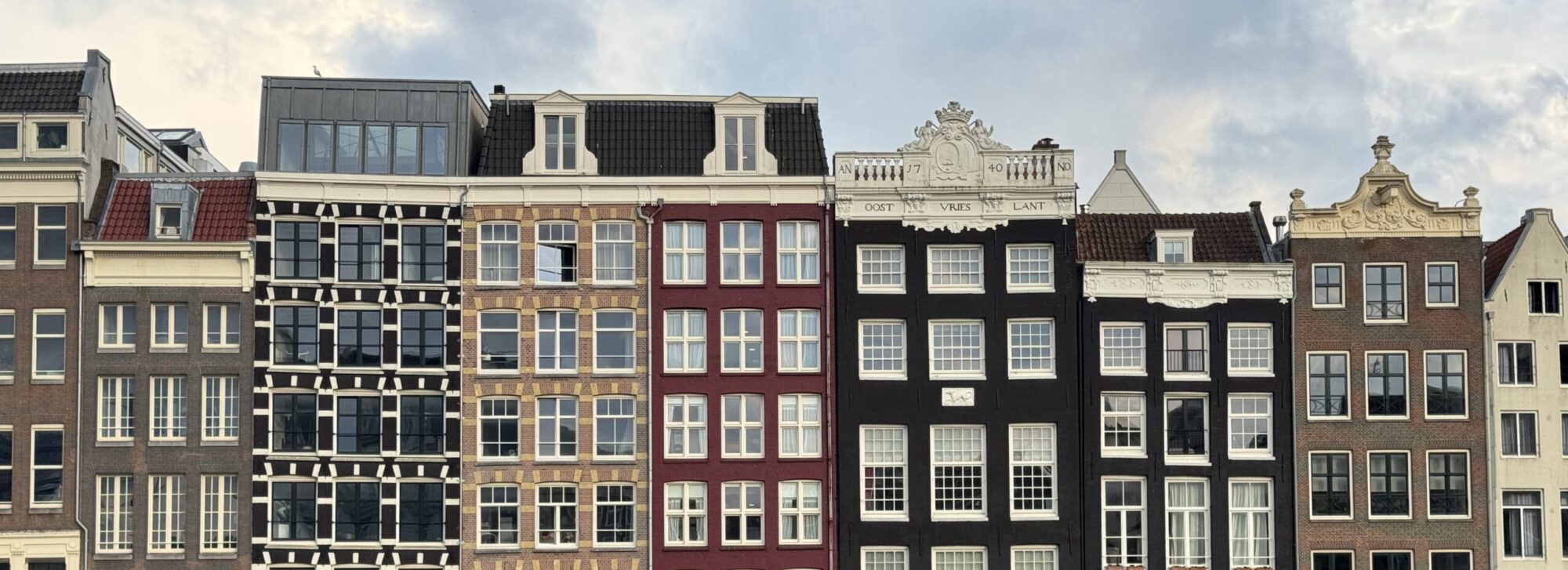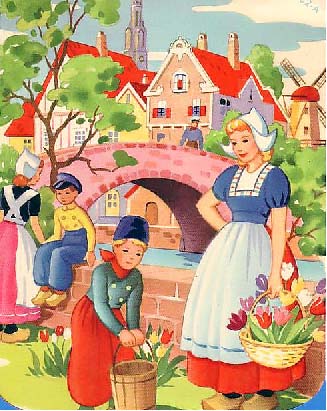Articles:
Dutch has three articles, two definite articles, de and het(the), and one
indefinite article een(a or an).
2.1 Definite articles 'the'
Definite articles: `de' and `het':
De is used before masculine and feminine nouns and het before neuter
nouns. We usually talk about de-words and het- words. There is no
way to tell from a given word whether it is one or the other. It is
advisable therefore to learn the article together with the new noun
that is being learned. Two useful rules may be worth remembering:
I. ALL PLURALS ARE DE-WORDS: although `huis' is a het-word (het huis), the plural is `de huizen', etc.
ii.
ALL SINGULAR DIMINUTIVES ARE HET-WORDS: although `tafel' (table) is
a de-word (de tafel), the diminutive is `het tafeltje', etc.
Note:
Plurals take preference over diminutives, so we say not only `de
huisjes' but also `de tafeltjes', etc.
2.2 Indefinite articles 'a, an'
Indefinite article: `een':
`Een' is pronounced very much like `an' in `an apple' and also has
the same meaning and function as the indefinite article in English:
`a child' in English is `een kind' in Dutch; `an accident' is `een
ongeluk' in Dutch.
2.3 Personal pronouns
Personal Pronouns:
| Singular
|
Person |
Dutch |
English |
1st |
ik |
I |
2nd |
je (unstressed), jij
(stressed) |
you (informal) |
2nd |
u |
you (formal) |
3rd |
hij |
he |
3rd |
ze (unstressed), zij
(stressed) |
she |
3rd |
het |
it |
| Plural |
Person |
Dutch |
English |
1st |
we (unstressed), wij
(stressed) |
we |
2nd |
jullie |
you (informal) |
2nd |
u |
you (formal) |
3rd |
ze (unstressed), zij
(stressed) |
they |
2.4 Verb 'to be' - 'zijn'
Het werkwoord "zijn" (The verb "to be"):
| Dutch |
English |
| ik ben |
I am |
| je bent (ben je?) |
you are (informal, unstressed) |
| jij bent (ben jij?) |
you are (informal, stressed) |
| u bent (bent u?) |
you are (formal) |
| hij is |
he is |
| ze is |
she is (unstressed) |
| zij is |
she is (stressed) |
| het is |
it is |
| we zijn |
we are (unstressed) |
| wij zijn |
we are (stressed) |
| jullie zijn |
you are |
| ze zijn |
they are (unstressed) |
| zij zijn |
they are (stressed) |
2.5 Possessive adjectives
Possessive Adjectives:
| Singular |
Person |
Dutch |
English |
1st |
mijn |
my |
2nd |
je (unstressed), jouw
(stressed) |
your (informal) |
2nd |
uw |
your (formal) |
3rd |
zijn |
his |
3rd |
haar |
her |
| Plural |
Person |
Dutch |
English |
1st |
ons/onze |
our |
2nd |
jullie |
your (informal) |
2nd |
uw |
your (formal) |
3rd |
hun |
their |
2.6 Verb 'to have'
Dutch |
English |
| ik heb |
I have |
| je/jij hebt (heb je/jij?) |
you have (informal) |
| u heeft |
you have (formal) |
| hij/ze/zij/het heeft |
he/she/it has |
| we/wij hebben |
we have |
| jullie hebben |
you have |
| ze/zij hebben |
they have |
Note i: When jij/je follows the verb, no -t is added. Normally we say: jij/je hebt. In reverse order we get: Heb jij/je, eg. in questions.
2.7 The question vorm
De vragende vorm (The question form):
In questions the order of subject and verb is reversed:
Jij hebt een huis - Heb jij een huis? (huis - house) Hij is een man - Is
hij een man?

